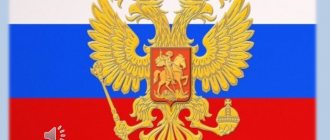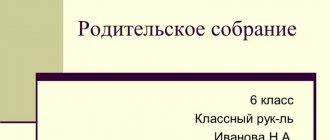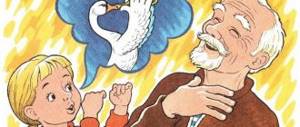Main objectives of MONITORING
- systematic determination of the level of knowledge of UUD methods and the corresponding skills to perform them;
- drawing up a plan for corrective activities.
THE ORGANIZATION OF MONITORING THE FORMATION OF UUD IN PRIMARY SCHOOL IS DESCRIBED IN THE MANUAL FOR TEACHERS
The methodological manual presents:
— theoretical foundations of UUD monitoring;
— content of diagnostic tools for monitoring each type of UUD;
— methodological recommendations for organizing monitoring and processing results, scenarios for classes with children.
UUD MONITORING IS PROVIDED BY AN AUTOMATED ONLINE RESULTS PROCESSING SYSTEM
Online analytical system:
— gives a complete and objective picture of the formation of universal educational actions among primary schoolchildren in the form of visual graphic diagrams and text recommendations;
correlates the indicators of the child and the class as a whole, entered by the user, with similar average age indicators of other users of the system.
More than 1,000 teachers and 30,000 students from 324 educational organizations in 56 constituent entities of the Russian Federation took part in the testing of comprehensive monitoring of educational learning.
RESULTS OF MONITORING TESTING (2011 – 2020):
1. PROCEDURES FOR MONITORING AUDIT IN PRIMARY SCHOOL HAVE BEEN TESTED
Comprehensive diagnostics of the results of the formation of UUD includes the following procedures
:
- Testing;
- Observation;
- Practical work;
- Questioning of teachers and parents.
Carrying out the entire range of diagnostic procedures ensures highly reliable results
.
2. AN AUTOMATED RESULTS PROCESSING SYSTEM HAS BEEN TESTED.
Automated results processing system:
- facilitates the analysis of the results obtained;
- displays visual reports on various parameters;
- issues methodological recommendations for organizing correctional work with children.
3. RESULTS OF EXTERNAL AND INTERNAL MONITORING RECORDED HIGH INDICATORS OF AUDIT FORMATION:
|
|
“I am very glad that comprehensive pedagogical monitoring has appeared! If earlier we, teachers, saw the results of the development of our children, their ability to communicate, set a goal, plan their actions and much more only visually, who knows, today we can confidently and objectively present the results of our activities. The provided tools allow us to conduct a comprehensive multi-component study, taking into account various factors that influence the formation of educational attainment, and build competent work to correct the educational process.”
Moscow, GBOU "School No. 1474", primary school teacher,
first stage methodologist Bolotova Irina Evgenievna
Diagnostic card “Formation of UUD in grades 8-9”
Diagnostic map of the formation of UUD of a student in 8th - 9th grade
F.I. student _____________________________________ Class ____ Academic year ___________ /___________
| UUD | Criteria | 1 p/y | year | ||||||||||||||||||||||||||||||
| Russian language. | math. | history | geogr. | biol. | Russian language. | math. | history | geogr. | biol. | ||||||||||||||||||||||||
| Regulatory UUD | |||||||||||||||||||||||||||||||||
| 1 | Determine and formulate the purpose of activities in lessons, in extracurricular activities, in life | Able independently determine and formulate the goals of educational and extracurricular activities, understand the motive, see the problem and set new development goals . | 2 | 2 | 2 | 2 | 2 | 2 | 2 | 2 | 2 | 2 | |||||||||||||||||||||
| Able to independently set and formulate a task, determine its purpose, but not in all types of activities. Accurately fulfills the requirements of the task. | 1 | 1 | 1 | 1 | 1 | 1 | 1 | 1 | 1 | 1 | |||||||||||||||||||||||
| With the help of a teacher, he is able to set and formulate a task and determine its purpose. Sometimes he performs these actions independently, but hesitantly. | 0 | 0 | 0 | 0 | 0 | 0 | 0 | 0 | 0 | 0 | |||||||||||||||||||||||
| 2 | Draw up an action plan to solve a problem (task) in class, in extracurricular activities, in life situations | Able to independently predict the result, draw up an algorithm of actions, making adjustments during its implementation; independently consciously chooses the most effective ways to solve problems of an educational, creative and search nature. | 2 | 2 | 2 | 2 | 2 | 2 | 2 | 2 | 2 | 2 | |||||||||||||||||||||
| Able to independently predict the result, draw up an algorithm of actions, making adjustments during its implementation; chooses the most effective ways to solve problems of an educational, creative and search nature, sometimes resorting to the help of a teacher and peers . | 1 | 1 | 1 | 1 | 1 | 1 | 1 | 1 | 1 | 1 | |||||||||||||||||||||||
| Able to independently predict the result of educational (based on a model) actions, plan an algorithm for their implementation, making adjustments during its implementation only under the guidance of a teacher , and uncertainly assesses his ability to achieve the goal. | 0 | 0 | 0 | 0 | 0 | 0 | 0 | 0 | 0 | 0 | |||||||||||||||||||||||
| 3 | Correlate the result of your activities with the goal or with the model proposed by the teacher, the planned results | Independently correlates the intermediate and final results of his activities with the goal or model proposed by the teacher, monitors his activities in the process of achieving the result, determines methods of action within the framework of the proposed conditions and requirements, adjusts his actions in accordance with the changing situation, and shows a creative approach . | 2 | 2 | 2 | 2 | 2 | 2 | 2 | 2 | 2 | 2 | |||||||||||||||||||||
| Correlates the final results of his activities with the goal or model proposed by the teacher, is able to independently determine actions within the framework of the proposed conditions, adjust his actions with the help of the teacher , and cannot always determine methods of action in accordance with the changing situation . | 1 | 1 | 1 | 1 | 1 | 1 | 1 | 1 | 1 | 1 | |||||||||||||||||||||||
| In the process of completing a task, he constantly correlates the intermediate and final results of his activities with the goal or with the model proposed by the teacher - because of this, he loses a lot of time. | 0 | 0 | 0 | 0 | 0 | 0 | 0 | 0 | 0 | 0 | |||||||||||||||||||||||
| 4 | Independently carry out actions to implement the plan to achieve the goal, checking the results | Independently plans ways to achieve goals, chooses the most effective ways to solve educational and cognitive problems. Masters the basics of self-control and self-esteem and is able to make informed choices in educational and cognitive activities . | 2 | 2 | 2 | 2 | 2 | 2 | 2 | 2 | 2 | 2 | |||||||||||||||||||||
| Able to independently plan ways to achieve goals. Able to independently adjust work as the task progresses. Knows the basics of self-control. Performs actions uncertainly. | 1 | 1 | 1 | 1 | 1 | 1 | 1 | 1 | 1 | 1 | |||||||||||||||||||||||
| Able to correct work as the task progresses, when errors are pointed out to him from the outside . Unable to independently set learning goals. Does not know the basics of self-control and self-esteem. | 0 | 0 | 0 | 0 | 0 | 0 | 0 | 0 | 0 | 0 | |||||||||||||||||||||||
| 5 | Evaluating the results of your work. Possession of the basics of self-control, self-esteem, decision-making and making informed choices in educational and cognitive activities. | Able to adequately independently assess their capabilities in solving educational problems, evaluate interactions with other students and the teacher. Able to correctly evaluate and justify the results of his work based on the criteria he has developed . | 2 | 2 | 2 | 2 | 2 | 2 | 2 | 2 | 2 | 2 | |||||||||||||||||||||
| Able to independently assess their capabilities in solving educational problems and the results of their work based on the assessment criteria proposed by the teacher . Does not always correctly evaluate interactions with other students and the teacher. | 1 | 1 | 1 | 1 | 1 | 1 | 1 | 1 | 1 | 1 | |||||||||||||||||||||||
| With the help of a teacher, he is able to evaluate his abilities in solving educational problems and justify the results of his work. Does not know how to correctly evaluate interactions with other students and the teacher. | 0 | 0 | 0 | 0 | 0 | 0 | 0 | 0 | 0 | 0 | |||||||||||||||||||||||
| TOTAL: 10-9 points - high level, 8-5 points - average level, 0-4 points - low level | |||||||||||||||||||||||||||||||||
| Cognitive UUD | Russian language. | math. | history | geogr. | biol. | Russian language. | math. | history | geogr. | biol. | |||||||||||||||||||||||
| 1 | Independently guess the information needed for learning, select sources of information among those proposed | Independently carries out an extensive search for information to implement design and research activities using various resources and identifies the necessary information . Competent in the use of information and communication technologies. | 2 | 2 | 2 | 2 | 2 | 2 | 2 | 2 | 2 | 2 | |||||||||||||||||||||
| Independently searches for information and identifies what is needed with the help of a teacher or classmates. Applies information retrieval methods, including using computer tools. | 1 | 1 | 1 | 1 | 1 | 1 | 1 | 1 | 1 | 1 | |||||||||||||||||||||||
| Finds it difficult to identify the necessary information even when assisted in using information and communication technologies. | 0 | 0 | 0 | 0 | 0 | 0 | 0 | 0 | 0 | 0 | |||||||||||||||||||||||
| 2 | Read various literature, understand what you read, possess semantic reading skills. | S independently understands the holistic meaning of the text , is able to determine its topic, purpose, purpose; find the required information in the text; master the basics of reflective reading, pose a problem and argue for its relevance . | 2 | 2 | 2 | 2 | 2 | 2 | 2 | 2 | 2 | 2 | |||||||||||||||||||||
| Able to read texts from textbooks, fiction and popular science books, and extract information from the text independently in accordance with the communicative task. Able to structure knowledge, understand the purpose of reading and comprehend what is read. | 1 | 1 | 1 | 1 | 1 | 1 | 1 | 1 | 1 | 1 | |||||||||||||||||||||||
| Able to read textbooks, fiction and popular science books, extract information from the text with the help of a teacher in accordance with the communicative task. | 0 | 0 | 0 | 0 | 0 | 0 | 0 | 0 | 0 | 0 | |||||||||||||||||||||||
| 3 | Process information from one form to another, choose the most convenient form. Present information in the form of text, tables, diagrams, including using ICT | Able to implement design and research activities , able to define concepts, establish cause-and-effect relationships, generalize concepts - carry out the logical operation of transition from specific characteristics to a generic concept. | 2 | 2 | 2 | 2 | 2 | 2 | 2 | 2 | 2 | 2 | |||||||||||||||||||||
| Selects the most effective ways to solve problems depending on specific conditions. Able to present the results of work in a given format , compose the text of a report and presentation using ICT. | 1 | 1 | 1 | 1 | 1 | 1 | 1 | 1 | 1 | 1 | |||||||||||||||||||||||
| Selects the simplest ways to solve problems (acts according to a model). Does not always know how to present the results of work in a given format or make a presentation using ICT. Conducts observations and experiments under the guidance of a teacher and draws conclusions | 0 | 0 | 0 | 0 | 0 | 0 | 0 | 0 | 0 | 0 | |||||||||||||||||||||||
| 4 | Process information to obtain a new result. Analyze, compare, group various objects, phenomena, facts | Able to independently process information to obtain a new result , choosing the most effective way to solve a problem, depending on specific conditions. Independently selects the bases and criteria for logical operations, conducts research based on the use of observation and experiment methods. | 2 | 2 | 2 | 2 | 2 | 2 | 2 | 2 | 2 | 2 | |||||||||||||||||||||
| Able to process information to obtain results. Able to perform logical operations, abstraction, analysis, synthesis. Independently chooses a solution strategy, builds and tests hypotheses, but sometimes makes mistakes . | 1 | 1 | 1 | 1 | 1 | 1 | 1 | 1 | 1 | 1 | |||||||||||||||||||||||
| Partially possesses research skills, with the help of the teacher draws up a plan for testing the proposed hypothesis and carries out observations and experiments; knows how to classify and generalize, but often makes mistakes. | 0 | 0 | 0 | 0 | 0 | 0 | 0 | 0 | 0 | 0 | |||||||||||||||||||||||
| 5 | Be able to convey content in a compressed manner, selective or expanded form, plan your work on studying unfamiliar material | Able to draw conclusions and convey content in a compressed and expanded form. Creatively applies information into practice . Plans work on learning new material independently. | 2 | 2 | 2 | 2 | 2 | 2 | 2 | 2 | 2 | 2 | |||||||||||||||||||||
| Identifies primary and secondary information. Able to convey content in a compressed, selective or expanded form, but does not always apply the information in practice. | 1 | 1 | 1 | 1 | 1 | 1 | 1 | 1 | 1 | 1 | |||||||||||||||||||||||
| Does not always determine primary and secondary information. May periodically transmit content in condensed, selected or expanded form. | 0 | 0 | 0 | 0 | 0 | 0 | 0 | 0 | 0 | 0 | |||||||||||||||||||||||
| TOTAL: 10-9 points - high level, 8-5 points - average level, 0-4 points - low level | |||||||||||||||||||||||||||||||||
| Communicative UUD | Russian language. | math. | historian | geog. | biol. | Russian language. | math. | history | geog | biol. | |||||||||||||||||||||||
| 1 | Convey your position to others using monologue and dialogical speech, taking into account your educational and life situations | Able to formulate his own opinion and position , argue and coordinate it with the positions of partners in cooperation when developing a common solution in joint activities. Argue your point of view , argue and defend your position in a manner that is not hostile to opponents. | 2 | 2 | 2 | 2 | 2 | 2 | 2 | 2 | 2 | 2 | |||||||||||||||||||||
| Able to express his thoughts orally or in writing, taking into account his educational and life speech situations. Consciously and voluntarily constructs a speech utterance in oral and written form. | 1 | 1 | 1 | 1 | 1 | 1 | 1 | 1 | 1 | 1 | |||||||||||||||||||||||
| Knows how to ask questions necessary for organizing his own activities and cooperation with a partner, but cannot always convey his position to others. | 0 | 0 | 0 | 0 | 0 | 0 | 0 | 0 | 0 | 0 | |||||||||||||||||||||||
| 2 | Understand and take into account different opinions and be able to justify your own | Able to establish and compare different points of view, argue and coordinate them with the positions of partners in cooperation when developing a common solution to joint activities . | 2 | 2 | 2 | 2 | 2 | 2 | 2 | 2 | 2 | 2 | |||||||||||||||||||||
| Able to take into account different opinions and strives to coordinate different positions in cooperation. Able to negotiate, including in situations of conflict of interests. | 1 | 1 | 1 | 1 | 1 | 1 | 1 | 1 | 1 | 1 | |||||||||||||||||||||||
| Able to participate in dialogue, but does so reluctantly ; listens and understands others, but does not always express and argue his point of view, and does not always follow the rules of speech etiquette. | 0 | 0 | 0 | 0 | 0 | 0 | 0 | 0 | 0 | 0 | |||||||||||||||||||||||
| 3 | Proficiency in oral and written speech, monologue contextual speech. Negotiate with people, coordinating your interests and views with them, in order to do something together. | Masters dialogical and monologue forms of communication, follows the moral, ethical and psychological principles of communication and cooperation based on respectful attitude towards partners, and carries out communicative reflection. | 2 | 2 | 2 | 2 | 2 | 2 | 2 | 2 | 2 | 2 | |||||||||||||||||||||
| Knows how to work in a group , argues his point of view, knows how to ask questions necessary for organizing his own activities and cooperation with a partner. | 1 | 1 | 1 | 1 | 1 | 1 | 1 | 1 | 1 | 1 | |||||||||||||||||||||||
| Poorly uses dialogue techniques of speech and adequate linguistic means, does not take the initiative, weakly argues and defends his opinion. | 0 | 0 | 0 | 0 | 0 | 0 | 0 | 0 | 0 | 0 | |||||||||||||||||||||||
| TOTAL: 6-5 points - high level, 4-3 points - average level, 0-2 points - low level | |||||||||||||||||||||||||||||||||
| Teacher (signature): | |||||||||||||||||||||||||||||||||
| Personal UUD | |||||||||||||||||||||||||||||||||
| 1 | Self-esteem. Evaluate situations and actions (values) | Forms self-respect and an emotionally positive attitude towards oneself, there is a willingness to openly express and defend one’s position, criticism of one’s actions and the ability to adequately evaluate them | 2 | 2 | |||||||||||||||||||||||||||||
| Shows interests, initiative and curiosity, studies with a clear organization of his activities. Doesn’t always openly express and defend his position and adequately evaluate himself | 1 | 1 | |||||||||||||||||||||||||||||||
| Does not show interest, initiative or curiosity in learning. He remains silent, does not express or defend his position. Inadequately evaluates himself | 0 | 0 | |||||||||||||||||||||||||||||||
| 2 | Personal self-reflection, ability for self-development, motivation for knowledge and learning | Performs independent actions and actions (including those of a leading nature), accepts responsibility for their results. Purposeful and persistent in achieving goals, ready to overcome difficulties | 2 | 2 | |||||||||||||||||||||||||||||
| Shows independence, initiative and responsibility as an individual. Sometimes does not reach the goal, is afraid to overcome difficulties | 1 | 1 | |||||||||||||||||||||||||||||||
| Does not or extremely rarely shows independence, initiative and responsibility as an individual. Performs only the simplest tasks, aims for failure | 0 | 0 | |||||||||||||||||||||||||||||||
| 3 | Self-define in life values (in words) and act in accordance with them, taking responsibility for your actions (personal position, Russian and civil identity) | Shows tolerance and counteracts actions and influences that pose a threat to the life, health and safety of individuals and society within their capabilities. He recognizes himself as a citizen and has an active, formed civic position. Participates in social design | 2 | 2 | |||||||||||||||||||||||||||||
| Shows respect for other people and self-dignity. Understands and accepts a person’s ability to be himself and make independent decisions in a variety of social, professional and personal situations. Is aware of himself as a citizen, has an active, but not fully formed civic position | 1 | 1 | |||||||||||||||||||||||||||||||
| Does not show respect for other people. Does not accept the possibility of a person to be himself. Conscious of himself as a citizen, has a passive, unformed civic position | 0 | 0 | |||||||||||||||||||||||||||||||
| TOTAL: 6-5 points - high level, 4-3 points - average level, 0-2 points - low level Educational psychologist: ________________________________________________ | |||||||||||||||||||||||||||||||||
| RESULTS OF FORMATION OF UUD (regulatory, cognitive, communicative, personal): 32-28 points - high level, 27-13 points - average level, 0-12 points - low level Classroom teacher :____________________________________________ | |||||||||||||||||||||||||||||||||
— regulatory- — regulatory-
— cognitive- — cognitive-
1 p/g - communicative - 2 p/g - communicative -
— personal- — personal-
- all- - all-
Conclusion:




